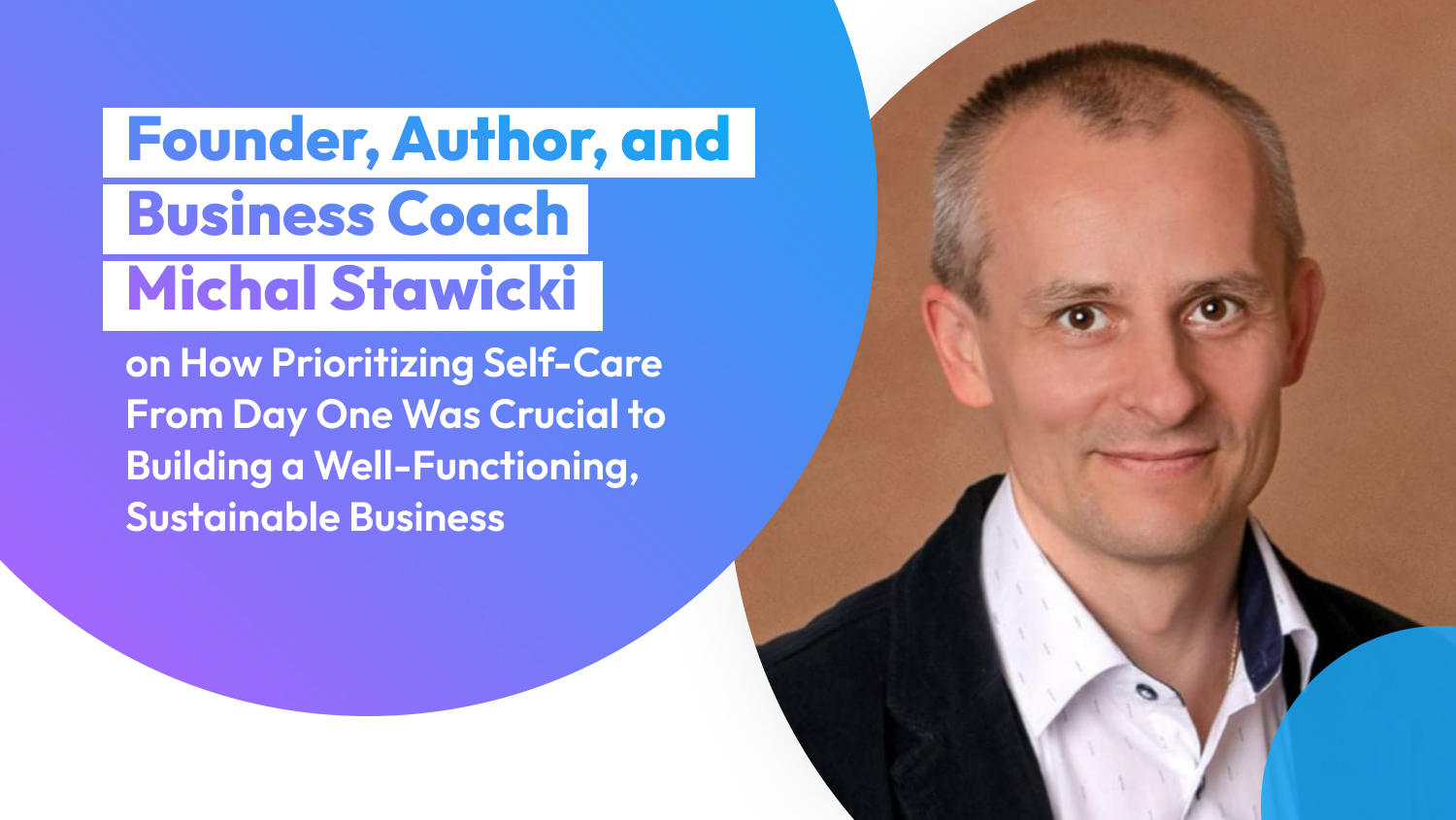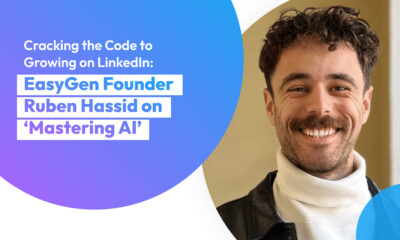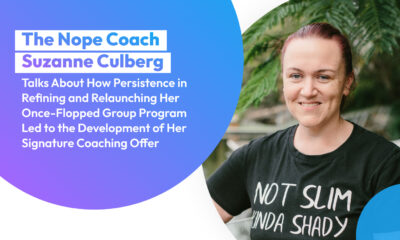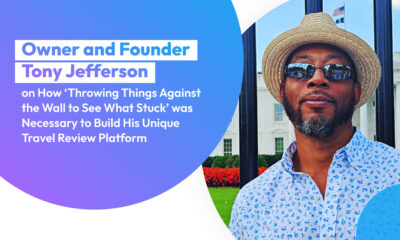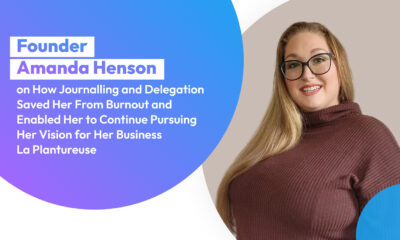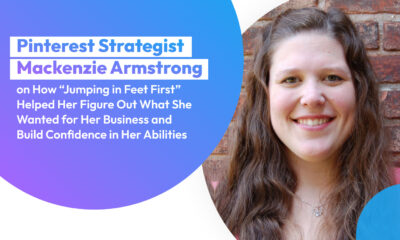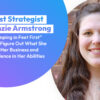Interview
Founder, Author, and Business Coach Michal Stawicki on How Prioritizing Self-Care From Day One Was Crucial to Building a Well-Functioning, Sustainable Business
A single book sparked Michal Stawicki’s interest in personal development. The inspiration to take control of his life has led him from an ‘average guy working in IT’ to a full-time entrepreneur sharing his knowledge on writing, publishing, building helpful habits, and business ten years later.
Read on to learn about Stawicki’s personal development journey, how he slowly built his businesses, starting with zero knowledge about entrepreneurship, and the people, tools, and time management systems that have helped him along the way. Don’t forget to check out his Read-Listen List at the end of the article.
Table of Contents
- Stawicki’s Background
- Stawicki’s Leap Into Entrepreneurship
- Early Business Days
- How Stawicki Grew His Business
- Stawicki’s Advice to Entrepreneurs and Handling Burnout
- How Stawicki Overcame His Biggest Challenge
- Stawicki’s Read-Listen List
- Wrap Up
- More About Michal Stawicki
Stawicki’s Background
What does your business do, and who are your customers?
We advertise books on Amazon. Our customers are mostly nonfiction self-published authors, although we don’t discriminate – we also have fiction authors and traditionally published authors.
What first got you started working on your business, and what motivates you each day to do what you do?
Till 2012, I was just an average guy working in IT support—the usual story: a day job, marriage, three kids, mortgage.
In August 2012, I read a book, “The Slight Edge” by Jeff Olson, and started transforming my life.
What motivates me? Bills to pay 😉 My team. Helping my customers. Not necessarily in this order.
How long have you been in business?
It depends on how long you define “business.” I took my first steps toward independence in September 2012, but it didn’t convert into dollars till November 2013. I published my first book in May 2013. I started habit coaching at the end of 2014. I got my first client for book advertising in June 2017. I officially started my business in January 2018.
Stawicki’s Leap Into Entrepreneurship
How did you decide to start your business and take the leap into entrepreneurship?
“Leap” may seem too big of a word when it comes to my story. I transitioned into entrepreneurship very gradually. In 2012, I was a full-time employee and had zero side hustle or side income. In the next five years, I started different endeavors. In 2018, I downsized my day job to half-time and next year to quarter-time. I finally quit my day job in August 2022.
Yet, I recognize one leap: the time when I actually decided to change my life. Starting my own business was a part of that transformation, but back then, I had zero clue about business. I even didn’t know what I didn’t know.
My leap was from the fixed mindset to the growth mindset. It happened in September 2012. For the whole month, I had been grappling with the message from the book The Slight Edge: Success is a few simple disciplines repeated over time.
Before reading The Slight Edge, I was convinced that success is something grand (picture starting a new Google or winning a golden medal at the Olympics), and I deemed myself incapable of it.
Giving myself permission to try to succeed was the biggest leap of faith in my life.
People: I started book writing and coaching totally on my own. Well, since day #1, I used editors and cover designers. When I “half-leaped” into entrepreneurship, a few members of my family had been helping me with the workload (my two sons, wife, sister, and my father). None of them worked even ten hours a week for me.
Tools: Writing: It was solely Kindle Direct Publishing (KDP) at the beginning. Soon, I added many other tools to my inventory – various promo sites, Fiverr, Facebook groups, Create Space (which has been acquired by KDP), Draft2Digital, Scrivener.
Coaching: I got certified on an online platform, Coach.me. I’ve been working with them and on their platform up till this day.
Book advertising: I used WordPress to create my website, AWeber to collect the prospects’ email addresses, and Publisher Rocket (named KDP Rocket back then) to harvest keywords from Amazon.
How did you manage your time during the transition to entrepreneurship?
I dedicated every spare minute to my side hustles. However, I always reserved time for my family, fitness, spiritual practices, and personal development first. I couldn’t have kept up my crazy pace for so long (five years working 50-80 hours a week) if I didn’t take care of myself.
Early Business Days
What were some of the challenges you faced in the first year or early on in your business and how did you overcome them?
I started on a shoestring budget, and I was unwilling to invest even a dime into my side hustle. It was a big deal for me to spend $6.14 on a book, which taught me how to self-publish, or $5 on a cover.
It took me about a year before I paid money for the work of someone else. I learned everything on my own from free sources: how to start a blog, how to purchase a domain, how to self-publish a book, how to hire someone on Fiverr, and so on.
Yet, my biggest challenge was isolation and lack of support. I didn’t know any author or online entrepreneur in the “real life.” My family thought I was chasing another pipe dream. My wife had serious issues with me dedicating my time to writing.
I overcame that challenge by building my network online. At the beginning of 2013, I participated in the Online Transformational Contest organized by Early to Rise. I met a bunch of online friends there. It was one of them who gave me an idea for my first book. Another proofread my first four books.
Later, I started following some virtual mentors and got involved in a few Facebook groups dedicated to self-publishing and entrepreneurship.
People: In the first year, the only person who had been helping me in my business was my son. He was sixteen at that time. I gave him the tedious work of creating the ads for customers. I took care of everything else – from prospecting through sales and accounting to customer service.
Tools: Excel and Google Sheets were my main tools. Other than that, Thunderbird – an email management software. And, of course, invaluable Publisher Rocket – a keyword research tool dedicated to books on Amazon. I also had a WordPress website.
How did you manage your time early on?
I worked whenever I could. I worked on trains to and from work. I worked early in the morning before going to work or late at night when everybody at home was asleep. I even worked for myself and my customers at work.
I had been taking my laptop everywhere with me. Whenever I had several minutes to spare – for example, waiting for a doctor’s appointment – I worked.
I started my business five years into my personal development transformation, so I had also some time management habits. My days were well structured, including morning and evening rituals. I started each day by drafting a to-do list for the day and setting up priorities. I avoided social media like a plague.
I worked around the clock, but it didn’t mean I had no time for other activities. My personal development and spiritual and family life were included and planned in my schedule as painstakingly as my work. I was a solopreneur, and I knew very well that I needed to take care of myself; my business was a direct reflection of my well-being.
I worked six days a week, but I never worked on Sundays, which also greatly contributed to my sanity and well-being.
How Stawicki Grew His Business
Between your early days and today, what have been some of the challenges you faced, and how have you overcome them?
Everything was a challenge. Long hours. Lack of understanding from my friends and family. Learning entrepreneurship from scratch.
I overcame them with personal development and networking. When I didn’t work, I learned how to work and take care of myself and my clients. Joining business-related masterminds helped me a lot.
People: Nowadays, my team is eight people strong. I hired two Virtual Assistants in the Philippines and one in Mexico. Also, four family members are helping me part-time. A couple of my friends serve as my freelancers whenever I need help with writing a book description, formatting a customer’s book, or creating a book cover.
Tools: Let’s see… I really lost count of how many tools we use. Here comes the list:
- WordPress and a few plugins for the website.
- Custom software written by my workmate for keywords database management.
- BirdSend – an email management software.
- Google Docs and Google Sites for maintaining the documentation of systems and processes.
- Google Sheets for tracking and calculating customers’ results.
- HubSpot and Airtable for Customer Service Management
- Gmail, Viber and Facebook Messenger for communication within the team.
- Publisher Rocket and Also Boughts Downloader by Kindletrends for keywords research.
- Zoom for team meetings and sales calls.
- Calendly and Google Calendar for managing my schedule.
- Movie Screen Recorder for video recording (documentation and feedback for customers).
- YouTube and Google Drive for hosting videos.
And I probably forgot about a dozen other tools.
How do you manage your time today or since ‘early business’?
Nowadays, I work about 30-40 hours a week, and only about half of those hours are dedicated to my business; I still write and coach too.
How did I achieve this relatively light workload? I hired and trained my VAs, so that they are now documenting their tasks and teaching other members of the team. I set time to work in my business; working on the business is still done on a whim, unfortunately.
I work six days a week. Saturday is usually lighter than other workdays and sometimes dedicated to family activities.
I had never totally burned out to the point that I was incapable of work. But there were some periods when I was constantly exhausted.
However, as I previously said, I was well aware of the fact that the well-being of my business is directly dependent on my well-being. This is why I expanded my team and delegated a lot of daily work.
Stawicki’s Advice to Entrepreneurs and Handling Burnout
What are the top three tips you’d give someone who’s interested in starting a business?
My top three tips are: Get started. Keep going. Modify along the way. They are solid tips for living a good life, but they are crucial in business.
Once you get started, keeping the momentum is much easier. Don’t just stand on the sideline trying to figure out the perfect idea for your business. Launch and figure out things along the way. That’s the best free business education you can get.
Don’t give up. Persistence is not a guarantee of success. But if you quit, failure is guaranteed. Every month you keep your business afloat, you gain priceless currency – experience.
Track and measure what you are doing. It will give you the necessary data to amend your ways. Your original idea doesn’t have to be the right idea. Listen to the feedback from your customers, and they will tell you what they need.
What is your relationship with burnout?
I have never totally burned out. I had a few periods of mild depression and slowed down to working just 20 hours a week. But I never burned out.
So, how did I prevent the burnout? I quickly recognized that I am my business, and it will be only as functional as I will be functional. Thus, I made it a part of my daily routine to take care of myself: my body, my soul, and my mind. From proper hydration to prayer, from getting enough sleep to listening to podcasts – I’ve been taking care of myself since almost day #1 (as soon as I recognized my mental, spiritual, and physical disposition is directly correlated to my business results).
What is your gross annual revenue in US dollars?
$70,000
On average, how many hours per week do you work? [in and on your business]:
I work about 35 hours per week on average. A 40-hour week means I worked especially hard, and 30-hour weeks aren’t that exceptional. Hmm, that is, unless you count taking care of myself into my work week. Then, you need to add at least 20 hours on top of that: exercising, reading, journaling, prayer, meditation – they are as inherent a part of my week as actual work.
How Stawicki Overcame His Biggest Challenge
What is one of the most difficult things you have overcome in your business?
Me, myself, and I. I got in my own way so many times; it is ridiculous. And I did it in so many ways.
Giving myself permission to start? Hands down, that was the hardest thing I’ve ever done in my life. I had been thinking for over a month before I committed to try.
Hiring my first employee outside my family circle? Lol, that was a disaster. I spent thousands of dollars and dozens of hours of training, but I picked the wrong person for the job!
Systematizing my business with systems and processes? It took me forever!
What are you most proud of when it comes to your business or journey?
It is always about my customers’ and readers’ results. Once, a guy commented on my Quora article that it helped him to deal with suicide-bordering depression.
Another time, a lady in the retiree age said that my book was the first one she read in full in about 20 years. And it helped her to dream again.
Whenever we boost book sales of my customers from a few copies a month to a hundred copies a month, I’m stoked.
And I swell with pride when I see the progress of my coaching clients. One of them doubled her business while fixing her health and relationships at the same time. Such life transformations are my greatest motivators.
Stawicki’s Read-Listen List
Books
There are so many. Check out the many book reviews on my blog: https://expandbeyondyourself.com/category/book-reviews/
- The Slight Edge by Jeff Olson and John David Mann
- The 12 Week Year by Brian P. Moran and Michael Lennington
- Profit First by Mike Michalowicz
- Big Potential by Shawn Achor
- 100-Million Dollar Offers by Alex Hormozi are at the top of my mind
Podcasts (I also recommend following social media of the hosts of those podcasts)
- Smart Passive Income by Pat Flynn
- The Game by Alex Hormozi
- It’s a Good Life by Brian Buffini
Are there any other tools, software, apps, etc. you use today that you haven’t mentioned?
I write in Notepad++. I consider it the best writing app, with a perfect balance between the available options and the clarity of the interface.
Microsoft Office, especially Excel, is my go-to tool for tracking anything. Google Sheets is my second choice, which I use for the sake of working in the cloud with my team.
I still use Windows Commander (now Total Commander) and Windows command line; I’m an old-fashioned IT guy.
Wrap Up
Stawicki’s story started with a radical mindset shift sustained with consistent action over a long period of time. Personal development principles started him off on his entrepreneurial journey and also sustained him during the challenging moments of isolation, lack of support, and the sheer hard work of building a new business. When his family doubted him, he found a support system, a business network, and mentors online, which may be a good tack for those whose family and friends may not understand their goals.
Oftentimes, every aspect of a starting entrepreneur’s life is sacrificed to prioritize the business – self-care only becomes a priority when approaching or after burnout. Stawicki showed us that creating a balanced, sustainable entrepreneurial life is possible, and important! Intentional scheduling of self-care activities is part of good business.
More About Michal Stawicki
Nicknamed Mr. Consistency, Michal Stawicki is a bestselling author in the personal development field and a business coach. He is obsessed with changing the world through daily habits, starting with his own habits and his world.
In the last decade, he published 19 books, sold over 84,000 copies of them, created dozens of new good habits, coached over 100 people in developing new habits, started a book advertising business, and quit his day job as a database administrator.
Michal preaches and practices consistent daily action. He believes this is the means to achieve success in any area of life, from parenting to business.
Find out more about him on his:
Website: https://resurrectingbooks.com/


